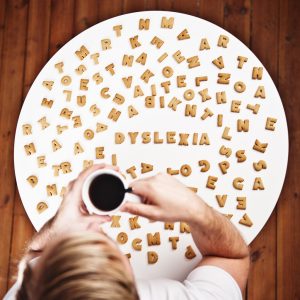Neurological Underpinnings of Dyslexia
 Dyslexia can be a devastating disability for children and adults alike, who are otherwise functionally and developmentally typical in every way. Patients, parents, and scientists have long searched for deeper understanding of this cognitive phenomenon, and recent research brings insight!
Dyslexia can be a devastating disability for children and adults alike, who are otherwise functionally and developmentally typical in every way. Patients, parents, and scientists have long searched for deeper understanding of this cognitive phenomenon, and recent research brings insight!
An article published in the Journal of Neuroscience describes new findings in regard to the neurological underpinnings of developmental dyslexia. Scientists worked with adults males diagnosed with dyslexia, and via diffusion tensor imaging, found significant and consistent neural variations from the typical brain. According to the fascinating published manuscript, “Our findings provide the first evidence that reduced cortico-thalamic connectivity in the auditory modality is a feature of developmental dyslexia and it may also affect reading-related cognitive abilities in neurotypical readers.”
This is an important revelation for ongoing research into intervention and treatment of dyslexia! As scientist continue to untangle the mystery of the neural correlates of dyslexia, educators can move towards addressing specific methodology for helping students who struggle with this disability.
MBJ
Check out the original research:


